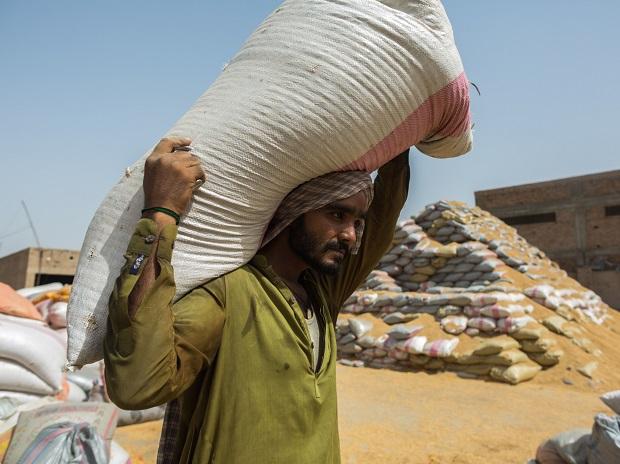At least 20 ships are waiting to load around 600,000 tonnes of rice at Indian ports as New Delhi’s surprise export restrictions have trapped cargoes for nearly a fortnight, forcing sellers to pay demurrage charges, industry officials told Reuters.
India banned exports of broken rice and imposed a 20% duty on exports of various other types on Sept. 8, as the world’s biggest exporter of the grain tries to boost local supplies and calm prices after below-average monsoon rainfall curtailed planting.
The surprise move trapped cargo that was moved to the ports or was in transit before the government made the announcement, said B.V. Krishna Rao, president of The Rice Exporters Association (TREA).
“We have requested the government to provide concession to this transitional cargo as we are paying hefty demurrage charges,” he said.
Apart from 600,000 tonnes rice that is waiting for the loading at berthed vessels, a further 400,000 tonnes of rice is stuck at port warehouses and container freight stations (CFS) even though contracts are backed by letters of credit (LCs), he said.
Broken rice shipments are stuck because of the ban, while in the case of white rice buyers and sellers are not willing to pay the 20% duty over the agreed price, dealers said.
“When contracts were signed there wasn’t any tax on the exports. Since exports now attract the tax, there is dispute who will pay the tax over the agreed price,” said a New Delhi-based dealer with a global trading firm.
In similar circumstances, New Delhi has in the past provided exemptions for contracts backed by LCs, or payment guarantees, issued until the day the government made a policy change. But that has not happened this time.
Stuck broken rice shipments were heading to China, Senegal, Senegal and Djibouti, while other grades of white rice were bought by buyers in Benin, Sri Lanka, Turkey and the United Arab Emirates, exporters said.
India exports rice to more than 150 countries and any reduction in shipments would increase upward pressure on food prices, which are already rising because of drought, heatwaves and Russia’s invasion of Ukraine.
(Reporting by Rajendra Jadhav; editing by David Evans)
(Only the headline and picture of this report may have been reworked by the Business Standard staff; the rest of the content is auto-generated from a syndicated feed.)
 Dear Reader,
Dear Reader,
Business Standard has always strived hard to provide up-to-date information and commentary on developments that are of interest to you and have wider political and economic implications for the country and the world. Your encouragement and constant feedback on how to improve our offering have only made our resolve and commitment to these ideals stronger. Even during these difficult times arising out of Covid-19, we continue to remain committed to keeping you informed and updated with credible news, authoritative views and incisive commentary on topical issues of relevance.
We, however, have a request.
As we battle the economic impact of the pandemic, we need your support even more, so that we can continue to offer you more quality content. Our subscription model has seen an encouraging response from many of you, who have subscribed to our online content. More subscription to our online content can only help us achieve the goals of offering you even better and more relevant content. We believe in free, fair and credible journalism. Your support through more subscriptions can help us practise the journalism to which we are committed.
Support quality journalism and subscribe to Business Standard.
Digital Editor



 Dear Reader,
Dear Reader,

GIPHY App Key not set. Please check settings